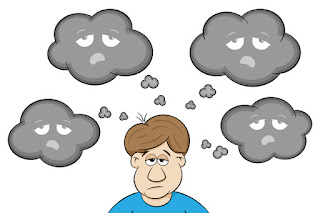How to spot anxiety and ways to calm it

When anxiety rears its head, it can have a seriously damaging effect on your mental wellbeing and can seep into many aspects of your life. From being unable to perform simple daily tasks to heart palpitations and brain fog, the symptoms of anxiety can be really frightening. Causes of anxiety There are many causes of anxiety which can differ from person to person, and it can be triggered at any point in our lives. Physical or emotional abuse The death of someone close to you Work issues Money worries Health concerns Some types of food and drink such as caffeine and sugary foods World events Because anxiety can often creep up on us, it’s important to recognise the symptoms early on before it leads to more serious physical health problems. Signs of anxiety If you haven’t experienced anxiety before, there are several symptoms you can watch out for so that you’re able to recognise it and take action. Feelings of dread Lack of concentration or having ‘brain fog’ Feeling on edge and restless ...
